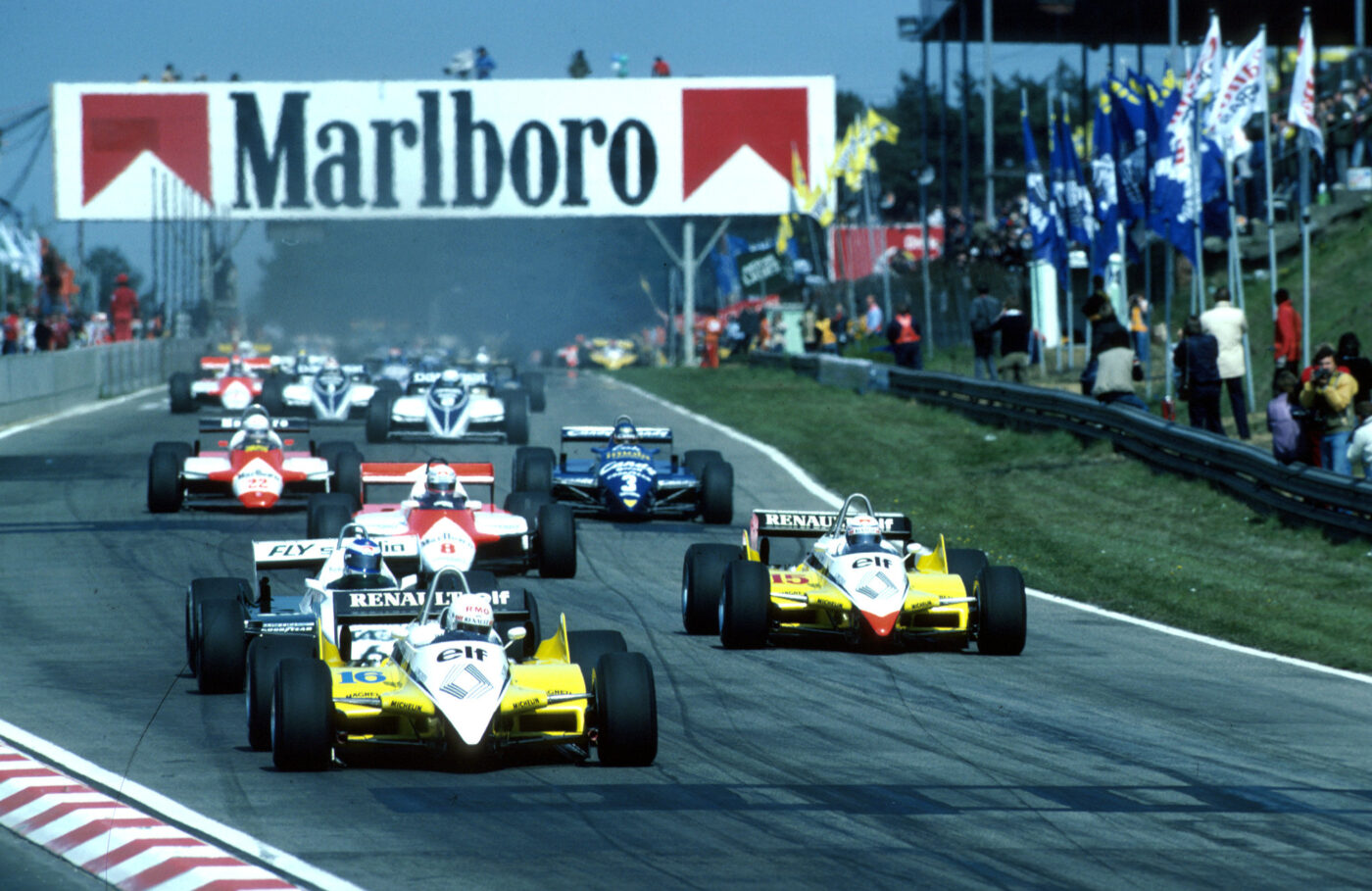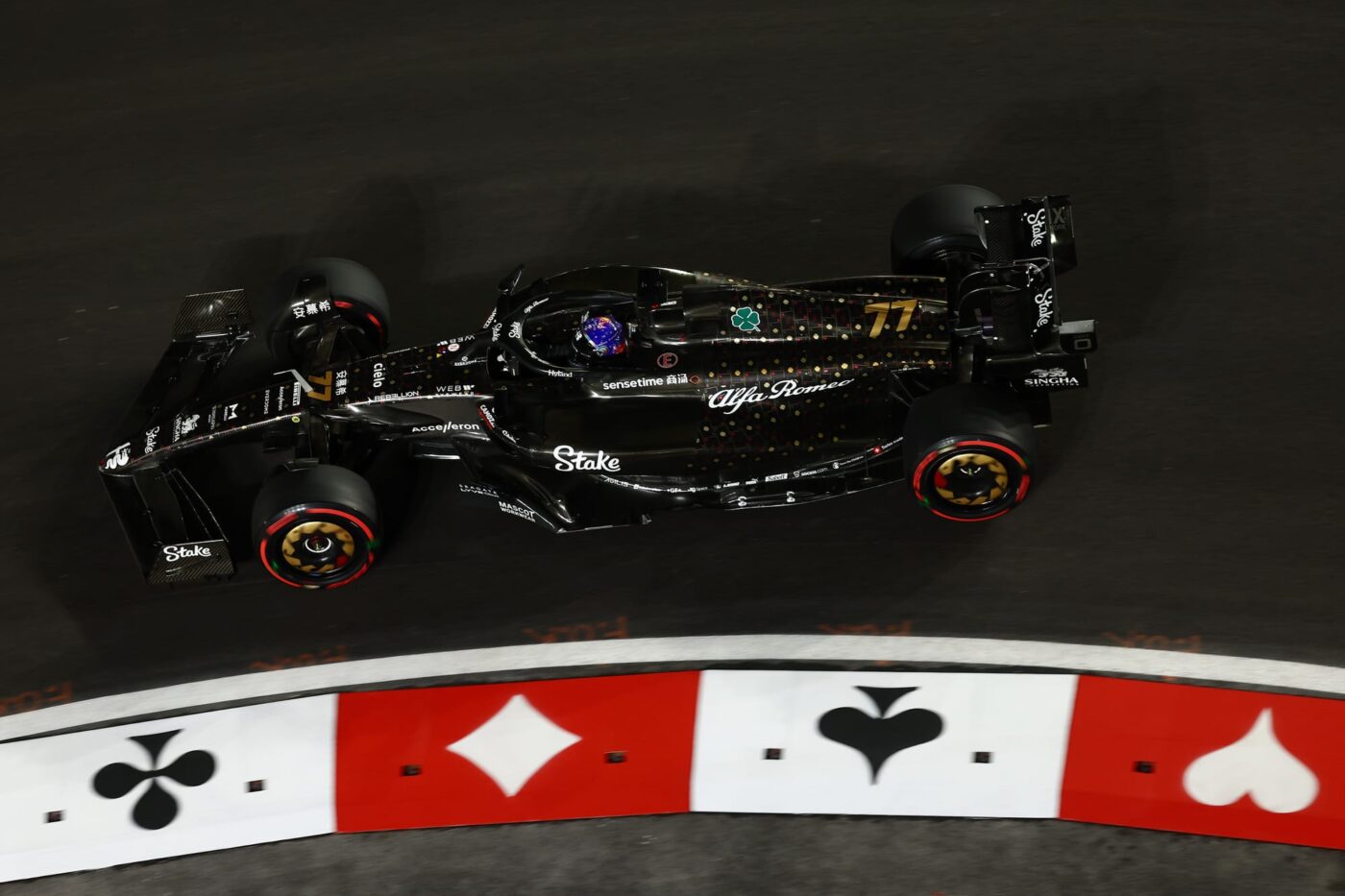With the recent announcement that the Australian-owned crypto casino Stake.com would replace Alfa Romeo in the 2024 season, conversations have arisen regarding the steady influx of crypto companies all looking for a piece of Formula 1 and the impact that can have on the sport in the future.
By now you would’ve undoubtedly heard the news that the former Alfa Romeo Formula 1 team, also known as Sauber, will go by another name when Valtteri Bottas and Zhou Guanyu line-up behind the wheel for the 2024 season.
The Swiss racing team, which had been known as Alfa Romero since 2019, will officially be known as Stake F1 Team Kick Sauber for the next two years after Stake, the controversial crypto-betting company co-owned by Australian crypto billionaire Ed Craven, signed with Sauber in February 2023.
Stake also sponsors Everton FC in the Premier League and is the Official Betting Partner of the UFC. This deal is set to earn Sauber a reported $100m USD (~$149 million AUD) over three years and will allow Stake to be promoted on the Formula 1 team until Audi takes over in 2026.
RELATED: Netflix Is Taking Over Live Sports So What Could That Mean For Formula 1?
The announcement was made with global megastar Drake, who has promoted the site since 2021 with online videos following big wins and even live-streaming specific tables available on the crypto casino, but for all the attention that this partnership has received, it could pose a big problem for Formula 1 further down the line.
Of course, it’s not the first time that Formula 1 has got into bed with crypto. Arguably one of the world’s most notable trading platforms, Crypto.com enjoyed advertising on 23 circuits throughout 2023, signed a nine-figure, nine-year deal for the exclusive naming rights for the Miami Grand Prix in 2022 and even took over the Formula 1 Overtake of the Month award.
RELATED: The New York Grand Prix: A Glimpse Into The Proposed 4th American Formula 1 Race

Formula 1 teams such as McLaren released a series of NFTs available for fans to purchase with Ethereum (ETH) and the San Francisco-based cryptocurrency exchange Kraken became Williams’ first official crypto and Web3 partner last season, joining Binance (Alpine), OpenSea (Haas) and Bybit (Red Bull) as major sponsors of the Formula 1 racing teams.
Deals such as these represent serious cash injections for Formula 1 teams but they’re not completely without complications, reminiscent of the decades-long partnerships that the sport has enjoyed with tobacco companies since its inception more than half a century ago.
RELATED: Formula 1’s Daniel Ricciardo Takes ‘Cost Of Living Measures’ For 2024 Success

Aside from the obvious issues with positioning a highly risky and unpredictable crypto marketplace with a booming Formula 1 audience, the introduction of the Stake F1 Team poses clear problems for eight of the 24 nations who are set to host the travelling Formula 1 convoy throughout the 2024 season.
Countries such as Switzerland (where Sauber is based), China, Bahrain, Brazil, Singapore, Qatar, Saudi Arabia, Japan and the UAE, all have strict laws that ban advertising gambling activities, whilst Stake, which operates out of Melbourne, is completely banned in Australia after the country banned online casinos in 2001.
Whichever way you look at it, crypto has moved in to become Formula 1’s New Tobacco, replacing the once ubiquitous presence of the controversial brands that partnered with the world’s premier motorsport since its inception. Whilst the parallels with the forgotten tobacco era are evident, the challenges they pose are unclear; Formula is moving towards unchartered terrain, with crypto firmly in the driver’s seat.
